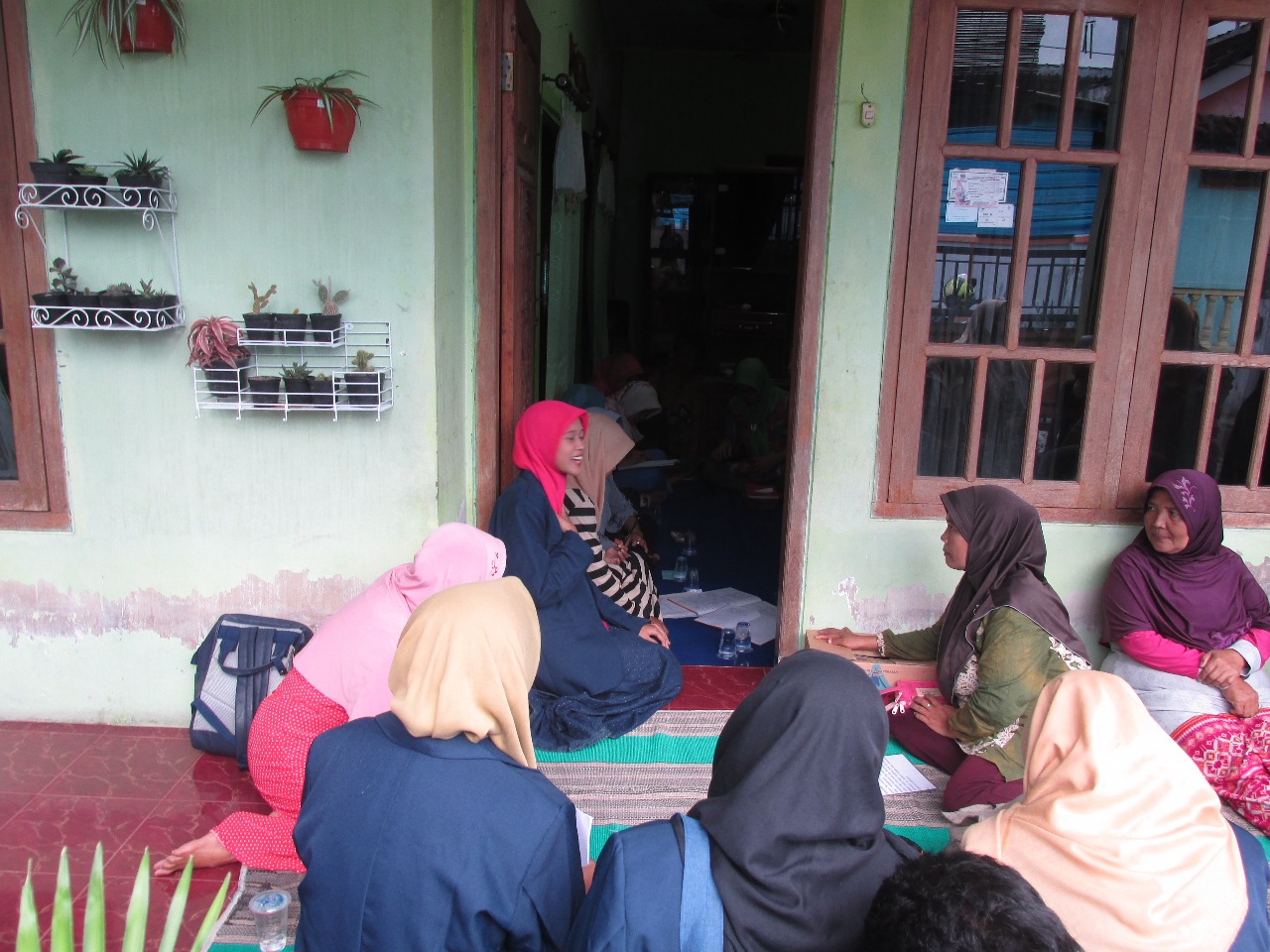UNAIR NEWS – Several proposals of Off Main Campus Program (PSDKU) Universitas Airlangga in 2019 have qualified to get funding for the Student Creativity Program (PKM). One of the titles funded was “Entrepreneurial Microflora Production as Pellets from Cattle Feces Waste to PKK Members in Singotrunan”. The proposal is for Community Service (PKM-M) category.
PKM-M group is chaired by Basmala Launa Dewi (FKH 2018) and the members are Rosdiyanah Ayu Aisiyah Putri (FKH 2017), Virgi Sapta Faradhilla (FKH 2018), Azaria Aldila Khoiriyah (FKH 2018) and Muhammad Habib Hilal Hamdi ( FKH 2018). They are supervised by Ragil Angga Prastiya, drh., M. Si.
To UNAIR NEWS last week, Basmala Launa Dewi explained that the project was conducted in the Singotrunan village, Banyuwangi from March to May 2019.
“And the implementation model is by approaching the PKK (Family Welfare Assistance) members in Singotrunan village,” she explained.
Regarding the topic, he explained, it was inspired by many Singotrunan people who work as cattle and catfish farmers. Almost all cattle breeders in Singotrunan do not know the benefits of animal feces. Therefore, she continued, their lack of knowledge in processing cattle feces made the abundance of cow feces wasted become waste.
“It’s rare for us to find good utilization of cow feces, when if it is processed properly, cow feces can be used as manure, biogas, and fish feed,” she explained.
Her team attempted to provide insight regarding how to process cattle feces well, which are not widely known by public. It can be used as fish feed as it is one of the main factors to improve the productivity of fish farming, and it spends the largest part of all production costs.
“We all know that catfish are voracious, so catfish farmers must have a lot of capital to purchase catfish feed. Therefore, the innovation using feed from cattle dung is a solution, ” she explained. “Moreover, this type of feed has a fairly good nutritional value for catfish growth, as good as catfish feed spread on the market,” she added.
Regarding the method of production, she explained that it was not too difficult. The activity can be used to improve the productivity of PKK members.
Some of the stages the team did were providing information about the benefits of cow feces and the importance of processing feces. Furthermore, a second counseling was about catfish which could be fed using cow feces. The next stage is the formation of cadres.
After the formation of cadres, she continued, training will be conducted for PKK Singotrunan Village members on how to make catfish feed from cow feces. Then the first evaluation carried out was by giving a questionnaire to find out how much knowledge the PKK members gained about cow feces and catfish.
“With this, we hope that the program will become a superior program in Banyuwangi, especially in Singotrunan Village and can be used as a new commodity of Singotrunan Village,” she concluded. (*)
Author: Muhammad Suryadiningrat
Editor: Nuri Hermawan





